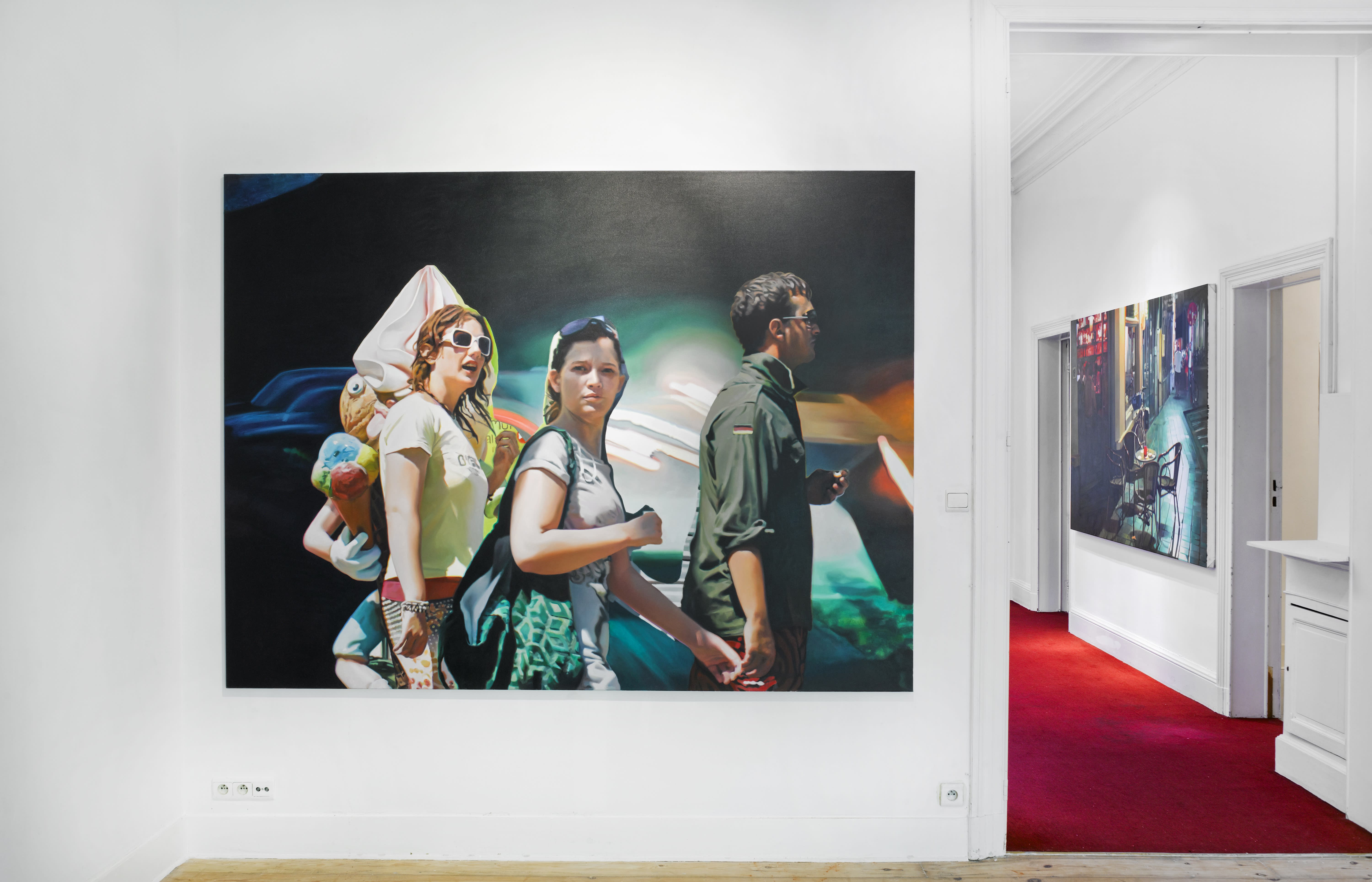
Kate Waters 'After You'
6 June - 19 July 2014
Aeroplastics, Rue Blanche, Brussels
Parallel to the solo exhibition of Mingjun Luo
Although they each occupy a distinct space in the gallery, the exhibition of Luo Mingjun and that of Kate Waters explore, in a related and complimentary manner, themes which have much in common.
Nonetheless, at first view the contrast between Kate Waters' vividly coloured tableaux and the white, grey and black tonalities that dominate Luo Mingjun's oeuvre are striking. The latter incarnates - in choice of mediums - a paradox intimately linked to her personal history: though trained in China in the western technique of oil-on-canvas, when the artist first takes up residence in Europe she rather favoured working with crayon, ink and rice paper, before once again renewing expression in painting at a later time. And it is with respect to this that Dolores Denaro has quite rightly commented that Luo Mingjun's drawings are constituted of "dust", to the extent that in China this material is laden with very strong significances. Indeed, in Buddhist thinking a speck of dust is the equal of a human life on Earth: "Globally, the artist sees in dust the symbol of the past. Each lived moment already belongs to history in the instant that follows. There only remains the vestiges of that which no longer is." These vestiges are exhumed by Luo Mingjun using photographs connected with life in China prior to her departure for Switzerland - images sometimes intimate but oftentimes banal, or drawn from the media of the day. The process of realization is complex: it is not about simple reproductions, but rather interpretations, freehand, in which certain details are omitted while others acquire a new importance. If, in her drawings, the artist leaves clear zones untouched, she proceeds in a way exactly opposite for her paintings, where it is the white paint, applied like Chinese ink, which constructs the shores of light.
Luo Mingjun has titled this series "Guanxi", a Chinese term that relates to the idea of a network, of exchange between individuals. For her part, Canadian Kate Waters has chosen the title "After You", which is equally bearer of multiple meanings. The artist stresses that this expression may be understood in different ways, that it may be a form of courtesy or the less winsome evocation of a world in which the notion of individuality and anonymity has disappeared (an "after you" where the "you" is no more). For Kate Waters, this duality is metaphor for an epoch torn between morally antagonistic concepts - altruism or frenzied individualism - that she envisages as "a Disney-remake of George Orwell's 1984" (the dissolution of the omni-surveilled individual to the benefit of the "greater whole", and smiling all the way). Like Luo Mingjun, Kate Waters uses the photographic aesthetic and, again like her colleague, it has more to do with the evocation of absence than presence (for that mater, the tableau that lends its title to the exhibition represents an empty café terrace, wherefrom the customers have just departed). The two artists play with painting's classical codes (large or middle-sized formats, themes of portraiture or landscape) to evoke disconnection and disappearance. Both utilize clichés that reveal a certain form of banality, even in the portraits of persons close to them. With Kate Waters, this process doubles in a reflection to do with digital domination, as much from points of view aesthetical (blurred or approximate, all images are henceforth valid) as ethical (our acts and gestures are ongoingly recorded and digitalized). One of these most recent works, One Fine Day (2014), is particularly emblematic of this process: a sunny family get-together, with a man in the foreground trying to sort out the dozens of photos he'd taken that day. The visual power of Kate Waters' tableaux rests on a paradox, one that comprises a very great pictorial mastery put at the service of images precisely chosen for their imperfection - a choice that the artist asserts, and which guarantees the coherence of her approach.
- PY Desaive

